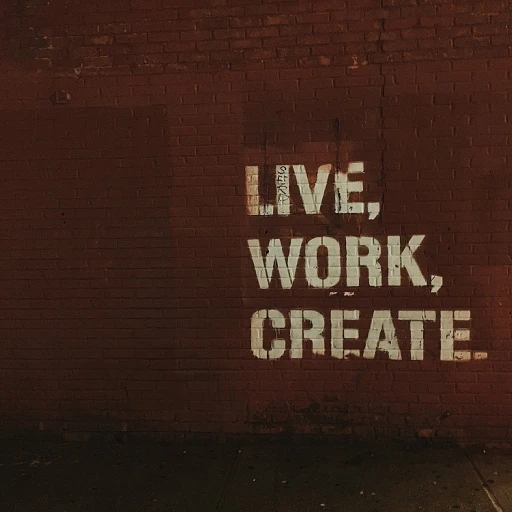Understanding AI Recruiting Assistants
Introduction to AI in Hiring
In an era where businesses are constantly striving to streamline their processes and improve efficiency, AI has emerged as a valuable ally in the sphere of recruitment. Many companies are now incorporating AI-powered assistants into their hiring strategies, significantly altering how they search for the ideal candidate. These AI recruiting assistants are designed to support recruiters throughout each phase of the hiring process, making it more efficient and less time-consuming.What is an AI Recruiting Assistant?
An AI recruiting assistant is a tool that utilizes artificial intelligence to manage various tasks in the recruitment process. These tasks range from screening resumes to scheduling interviews and communicating with candidates in real-time. What sets AI assistants apart is their ability to learn from data gathered during each interaction, subsequently allowing them to improve their performance and provide enriched assistance over time. With platforms like LinkedIn Hiring, recruitment managers can leverage AI to sift through high volumes of job candidates, identifying top talent more effectively. Instead of wading through endless resumes manually, recruiters now have a trusty assistant to handle this once tedious job. These tools are especially beneficial in high-volume hiring environments where time is of the essence, helping to fill positions more swiftly and effectively.Why AI? The Advantages for Recruiters
AI-powered recruiting assistants offer numerous advantages to recruiters. Besides saving precious time, they enhance the candidate experience by providing faster feedback and ensuring applications are processed without delays. This increased efficiency can lead to a greater likelihood of attracting and securing qualified candidates, ensuring valuable positions are filled with the right talent sooner rather than later. AI tools also have the capability to minimize human bias during resume screening. Unlike traditional recruiters, these systems assess candidates solely based on pre-defined criteria and data which can lead to a fairer, more objective hiring process. This fairness not only improves recruitment quality but also advocates for diversity and inclusion within workplaces. Moreover, these assistants can assist in crafting better job descriptions and analyzing candidate data to predict which potential hires best meet the demands of an open role. This offers hiring managers granular insights, fostering informed decisions about whom to bring aboard. Want to delve deeper into how AI can optimize your hiring process? Explore the potential of advanced candidate matching techniques and see how it can refine your recruiting approach.Benefits of AI in Recruitment
Boosting Efficiency in the Hiring Process
AI-powered recruiting assistants are shaking up how we hire. Imagine saving time on repetitive tasks like sifting through job descriptions or scheduling interviews. These assistants can handle high volume tasks, letting recruiters focus on what really matters—finding top talent. This isn't just about speed; it's about making the recruitment process smarter and more efficient.
Elevating the Candidate Experience
When candidates feel like they're just another resume in a pile, it's a turn-off. AI assistants change that by offering a more personalized experience. They can learn from data and adapt to provide real-time updates to job candidates. This kind of interaction makes candidates feel valued, which is crucial for attracting qualified candidates.
Data-Driven Decision Making
In recruitment, gut feelings aren't enough. AI recruiting assistants provide data-driven insights that help hiring managers make informed decisions. They analyze patterns from past hires and current candidates, offering a clearer picture of who might be the best fit. This data-driven approach helps fill roles with the right talent faster.
Reducing Bias in Hiring
Bias in recruitment can be a big issue, but AI can help level the playing field. By focusing on data and removing human biases, AI assistants ensure a fairer recruitment process. This is especially important when recruiting for diversity and inclusion goals. A fair process means better talent acquisition and a stronger team overall.
Improving Interview Scheduling
Interview scheduling can be a headache for recruiters. AI assistants simplify this by coordinating times that work for both recruiters and candidates, reducing back-and-forth emails. This not only saves time but also improves the candidate experience, making the entire process smoother and more efficient.
Real-World Impact
Companies using AI assistants report a noticeable improvement in their recruitment process. Recruiters have more time to engage with candidates, and hiring managers receive better-qualified candidates. It's a win-win situation that highlights the practical benefits of AI in recruitment.
Challenges and Considerations
The Right Balance with Technology
Even the coolest AI hiring assistant can't be perfect all the time. Sure, they're great at scanning heaps of data to find good talent. They handle things like interview scheduling, helping hiring managers save time, easing the whole hiring process. But here's the thing: they still need a human touch. That means you, the recruiter, need to ensure things are running smoothly.It’s Not All Rosy
Let's talk straight about the bumps in the road. Data isn't always accurate, which can lead to wrongly excluding top talent. The AI may not catch subtleties that human recruiters pick up on when they meet candidates personally. Plus, if the system's only relying on what's available on LinkedIn or other profiles, it might miss out on some real-time fresh talent. So, while these assistants can save you time during recruitment, they need fine-tuning and an attentive eye to really shine.Mind the Gap: Training and Bias
Another biggie is machine learning biases. If the AI is trained on flawed data, it'll continue to learn those faults. We must fill these gaps with new data and careful oversight to mitigate these biases. It involves constant checking and retraining of systems to only hire qualified candidates and ensure lil' machine doesn't go off track. Real inclusivity requires its own set of data guidelines.Privacy Matters Big Time
When using smart assistants, protecting personal data and respecting the candidate's privacy is crucial. Too much data collection without consent can damage trust. Implementing rules to safeguard private data is vital for a smooth recruitment process. Balancing data usage and personal rights keeps everyone comfortable and the recruiting process transparent. Hiring technology is evolving fast, yet we must be cautious in its application. Learn more about how AI is shaping the hiring process to stay prepared for these challenges.Real-World Applications
Bringing AI to Life in Recruitment
The shift to AI in recruitment is far from theoretical. Real-world applications are reshaping how hiring managers and recruiters manage their workload, making the process more effective. AI recruiting assistants have proven to be indispensable, especially when handling high-volume applications. Imagine scanning thousands of job candidates in real time. A task once considered time consuming is now streamlined with the help of an assistant, saving substantial time and allowing focus on more personalized tasks. With platforms like LinkedIn incorporating AI, recruiters can gain insights into candidates' backgrounds with little effort. These assistants learn from data, predicting which candidates are most likely to excel in a given role. This doesn't just fill vacancies; it matches qualified candidates with appropriate opportunities, enhancing the candidate experience. A day in the life of a hiring assistant revolves around automating repetitive tasks—interview scheduling, sending follow-up emails, and screening resumes. What once required hours now takes minutes. Time saved translates to better talent acquisition. Consider the case of a tech startup needing to grow rapidly. AI stepped in as a recruiting assistant, effectively doubling the recruiting team's capacity without adding extra headcount. It analyzed job descriptions and candidates' profiles, shortlisting top talents who were not only qualified but also a cultural fit. While it's clear that AI can make recruitment processes faster, the human touch remains essential. Recruiters use AI to handle the nitty-gritty, letting them dedicate more time to strategic decision-making and relationship-building with candidates. It’s a beautiful symbiosis of technology and human intuition. For more insights into refining candidate matching, check out advanced candidate matching. These real-world implementations highlight AI's impact in various recruiting tasks, reminding us that the future of hiring is here today, efficiently blending data-driven strategies with human expertise.Future Trends in AI Recruitment
AI and the Shaping Tomorrow of Recruitment
The world of recruitment is buzzing with excitement as AI takes center stage in reshaping how we hire candidates. You've probably encountered recruitment assistants popping up in conversations everywhere. What stands out, though, is their growing role in the future of talent acquisition. Consider this: AI-driven tools are learning from vast datasets, refining algorithms, and becoming astute observers of candidate behaviors. They spot patterns and trends, helping recruiters make more informed decisions. This ability to learn and adapt in near real-time is invaluable, especially when you're facing high volume hiring or searching for that elusive top talent. One significant trend is the focus on enhancing candidate experiences. AI assistants, with their knack for quick and efficient interview scheduling, cut the time lag that can often frustrate candidates and recruiting teams. Job seekers appreciate the speed and transparency these assistants bring. When hiring managers are backed by AI, they can dedicate more attention to nuanced tasks rather than getting bogged down in routine processes. Moreover, the integration of AI in platforms like LinkedIn transforms the recruitment process. Imagine sourcing qualified candidates through AI recommendations tailored to specific job descriptions. The results can significantly impact how quickly positions are filled, helping companies save valuable time and resources. But what about the recruiters themselves? AI may seem threatening at first glance, but in reality, it's like having an assistant by your side to help with mundane and time-consuming chores. Recruiters can sharpen their skills in human-centered tasks, like cultivating relationships and conducting in-depth interviews that machines aren't equipped to handle. As we look further, AI's trajectory in recruitment is on an upward trend. The tech continues evolving, promising more innovations aimed at better data insights and automation that align perfectly with human expertise. So, as AI continues to learn and adapt, the future of recruitment is not just about filling roles but about enriching the hiring process for both employers and candidates alike.Implementing AI Recruiting Assistants
Getting Started with AI Recruiting Assistants
Integrating AI into your recruitment process isn't just about adding another tool to the mix. It's about reshaping how you approach hiring, making it more efficient and effective. To start, it's essential to understand your recruitment needs and identify areas where AI can make a significant impact. Are you struggling with interview scheduling? Or perhaps you're looking to enhance the candidate experience? AI recruiting assistants can help with these tasks and more.
Choosing the Right Tools
There are numerous AI tools available, each designed to tackle different parts of the hiring process. Some focus on sourcing candidates, others on screening resumes, and some even help with interview scheduling. It's crucial to choose a tool that aligns with your specific needs. For instance, if you're dealing with high volume hiring, an AI tool that can quickly sift through large amounts of data to find qualified candidates will be invaluable.
Integrating AI with Existing Systems
Once you've selected your AI assistant, the next step is integration. This involves syncing the AI with your existing recruitment systems, such as your applicant tracking system or LinkedIn hiring tools. This integration is key to ensuring a seamless flow of data and communication. Remember, the goal is to save time and improve efficiency, not to create more work for your recruiters.
Training Your Team
AI is a powerful tool, but it's only as effective as the people using it. Training your hiring managers and recruiters on how to use the AI assistant is crucial. This includes understanding how to interpret the data provided by the AI, as well as how to adjust recruitment strategies based on insights gained. With proper training, your team can leverage AI to enhance the recruitment process and attract top talent.
Monitoring and Adjusting
After implementation, it's important to continuously monitor the performance of your AI recruiting assistant. Are you seeing improvements in the time it takes to fill positions? Are candidates having a better experience? Use this data to make adjustments and optimize the recruitment process. AI is not a set-it-and-forget-it solution; it requires ongoing attention to ensure it continues to meet your needs.
Incorporating AI into your recruitment process can transform how you hire, making it more efficient and effective. By carefully selecting the right tools, integrating them with your existing systems, and training your team, you can enhance your ability to attract and hire top talent.



